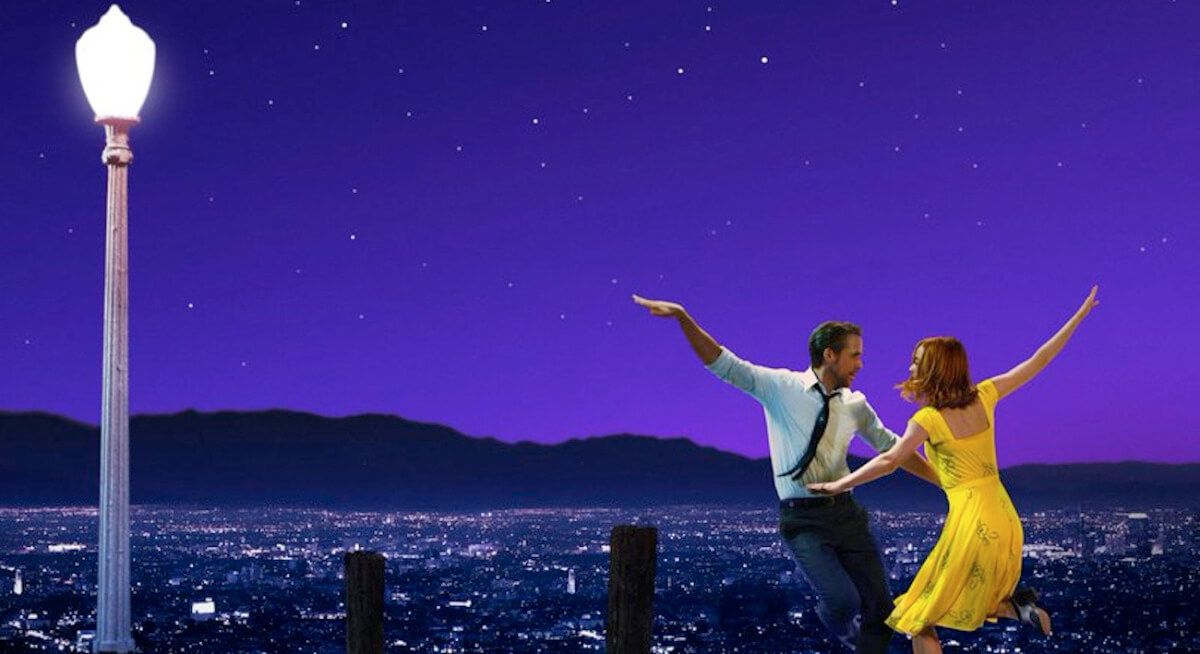ALBUM REVIEW: La La Land (Original Motion Picture Soundtrack)
by WRBB Media Team
2017-01-29

La La Land
Directed by Damien Chazelle
Music by Justin Hurwitz
Interscope · December 9th, 2016
Lit-ness Test:

By: William Kast (Guest Writer)
Musical theatre fans rejoice: you can stop talking about Hamilton with your relatives now. Yes, visionary director and jazz enthusiast Damien Chazelle’s La La Land is now at the top of every “best films of 2016” list and on the tip of all your wannabe film critic friends’ tongues. Was it the film that saved movie musicals? Maybe. Will it sweep the Oscars? Probably. Were the songs any good? Let’s talk about that.
La La Land kicks off with the polarizing “Another Day of Sun,” a number that reminds the audience that no matter how many Oscars this film will win, if you don’t like musicals, you can still exit the theatre quietly. It’s also the point where those who stayed in their seats that Justin Hurwitz, the composer, may have just written a masterpiece. “Another Day of Sun” is an opening number at its finest: fast, light on its feet, and so catchy that it would still be stuck in your head when you exit the theatre had it been the only song in the score.
The opening number is also the first to identify a serious problem with the music: the singers. Thankfully, Chazelle opted for a modern pop singing style over the alienating, nasal tones of broadway, but not everything about that works. There are times when the ensemble sounds like a high school choir that the teacher hasn’t been able to convince to sing out, and during the choruses, it is even hard to make out the words. However good the music may be, it struggles throughout the film with finding ways to accommodate inexperienced singers. Take “A Lovely Night” for example. Gosling’s vocal lines sound forced and completely disjointed from his speech throughout the song, and phrases like “good to know…is that so?” are clearly in an uncomfortable range for him.
The vocal difficulties certainly don’t extend to John Legend in his role as “Keith.” His song “Start a Fire” showcases perhaps the strongest vocal performance in the film. The song is staged as part of a concert for Keith’s band “The Messengers”, and is presumably their biggest hit. Unfortunately there doesn’t look to be much chance of this song becoming a crossover hit, as it mainly functions to demonstrate Gosling’s keyboard wizard skills and the reason why no self-respecting musician would want to join The Messengers unless they’re getting $1,000 a week (plus a cut of the merch).
In terms of actual musical numbers, there aren’t many aside from the opening and the highlights “City of Stars” and “Audition.” It’s hard to find fault with “City of Stars,” and it’s even possible to imagine the song becoming a legitimate jazz standard had it been released in Hollywood’s golden age. “Audition” offers a terrific performance from Emma Stone, but is less satisfying. It’s not that “Audition” isn’t a nice song, but like most 11 o’clock numbers, if it doesn’t stun you, it’ll leave you cold.
The one thing that stays consistently strong throughout the soundtrack is the score by Justin Hurwitz. The lyrics by Benj Pasek and Justin Paul are often transparent enough, if usually unmemorable (how many words from “Audition” do you actually remember? Something about a runny nose, and “here’s to the ones who dream,” probably followed by something ending in “seem”), and often capture beautiful moments (“city of stars, are you shining just for me?”), but it is Hurwitz who deserves the highest praise. From the dreamy “Mia and Sebastian’s Theme” to the buzz of “Another Day of Sun” and “Someone in the Crowd,” the recurring themes in La La Land are one of the most haunting and memorable parts of the film. If anything in Hurwitz’s writing can be faulted, it’s the number of times these themes are used. “Mia and Sebastian’s Theme” and “Planetarium” are essentially nothing more than different arrangements of the same music, and the same goes for “Someone in the Crowd” and “Engagement Party.” When you include all the incidental music used in the film, the number of uses of these themes is even higher. By the end of the film (possible spoiler), as Sebastian begins to play “Epilogue,” the result is unsatisfying. How can a song meant to spark long-suppressed memories take its effect on the audience if they’ve heard it fifteen times in the past hour?
These problems I imagine originate more from Chazelle than Hurwitz. There is much room for improvement in the use of themes and spacing of musical numbers, although the two are certainly onto something together.
Thanks to Justin Hurwitz’s mesmerizing score, La La Land’s soundtrack has no shortage of charm and beauty, but the shortcomings in structure and performance, not to mention the shortage of musical numbers, leave much to be desired. Still, it’s not often that the world gets more music like this, so I’ll take what I can get.
